7 Subtle Ways to Encourage Your Child to Read (and Love It!)
By
7 years ago
Wise words from the headmistress and deputy head of St Nicholas Pre-Prep School
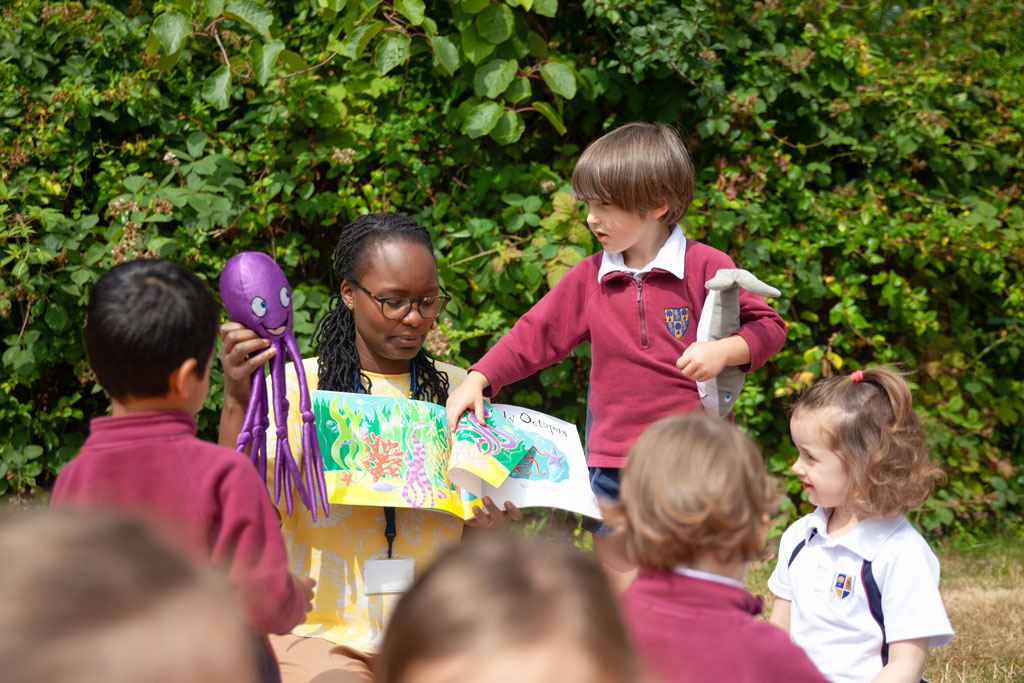
The key? Start them young. Here’s how.
You can’t argue with the fact that the relationship between reading for fun and educational success is well established: in 2011 Clark and Douglas published a report showing a positive relationship between reading frequency, enjoyment of reading and academic attainment.
If you can kickstart this process early, and inspire in your child a love of the written word – rather than stories told through screens – then their future is bright.
Easier said than done? Here are six indispensable tips from the headmistress of St Nicholas Pre-Prep School, Miss Katie Paynter, and deputy head, Samantha Gibbon, to help encourage your child to read.
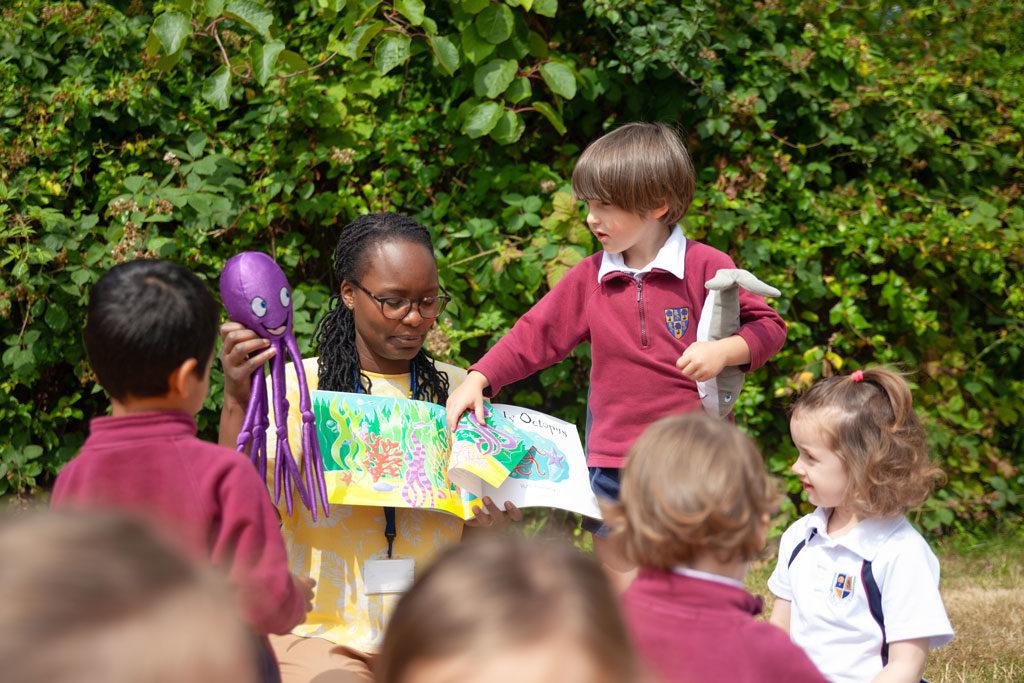
Reading to children in a more active way can be beneficial
7 Top Tips to Encourage a Love of Reading
1. Reading isn’t all about books
E-books, newspapers – such as First News (aimed at children aged 7-14) and The Week Junior (for children aged 8 to 14), and magazines, such as National Geographic Kids, are all just as good. If they’re less interested in fiction, or are intimidated by the step up to chapter books, then these might prove more engaging.
However, it is important that children are still encouraged to read fiction as the grammar and sentence construction tend to be more complex in storybooks and it is important that these are modelled for the children, as they will have to reproduce this type of writing in their English lessons in the years to come.
2. Let them be unique
Central to the idea of reading for fun is that children are able to read books on topics that interest them, so if football is their passion, books about football will inspire them. If unicorns or fairies light their fire, these books can develop their interest in reading and a wider variety of subject matter can be introduced later, as their confidence in reading grows.
Where a child has older siblings it can be very tempting to pass down the older siblings’ books, particularly if their siblings enjoyed them. The potential pitfall here is that the younger child misses out on the experience of looking for a new book, whether in a library or bookshop, and the excitement of taking home a book he or she has chosen.
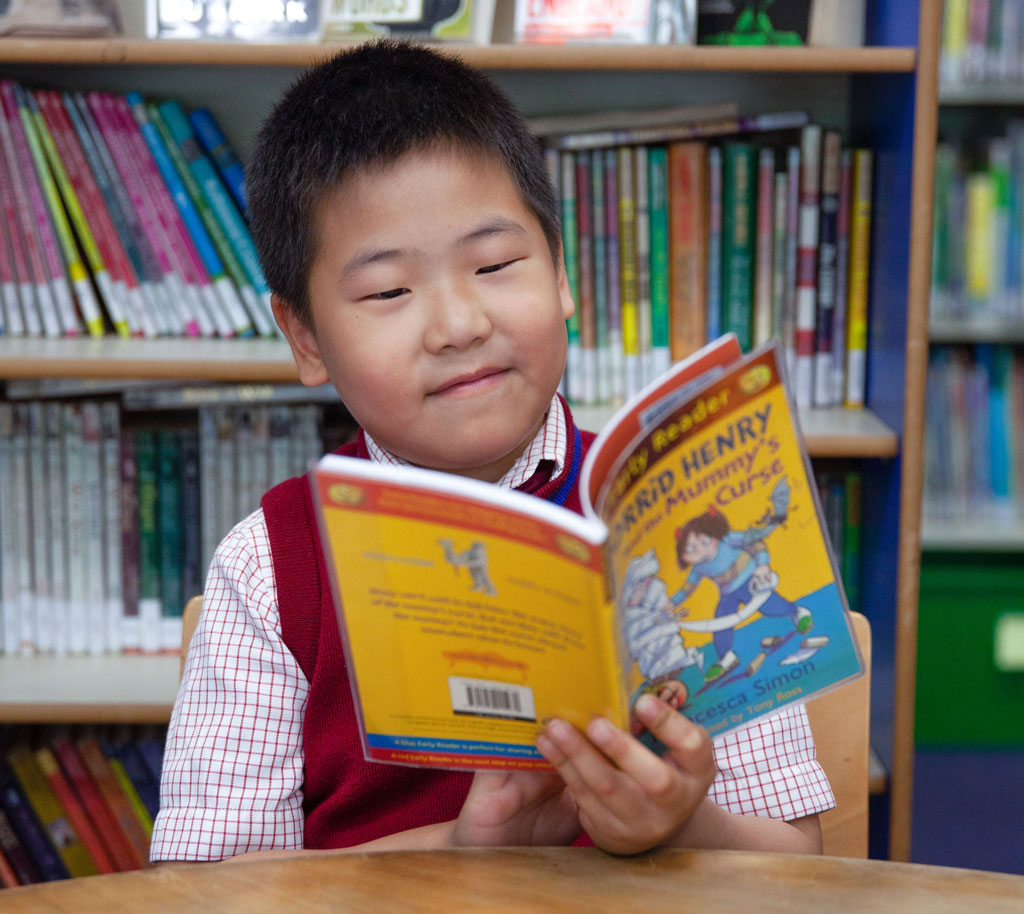
If they’re going to start reading for fun, children must be given the freedom to choose topics that interest them
3. There is no need for speed
There is a tendency for parents of a primary school age child to think they can measure how successful their child is at reading, by how fast that child completes the school’s reading scheme.
In fact, completing a scheme is far less important than ensuring that a child understands what he or she is reading and is really enjoying it – no one ever got a job by writing on their CV ‘Excellent reader – finished Oxford Reading Tree Scheme by age 6.’
It is important that children are given time to become confident in their reading at each stage before moving on to more challenging books as, if a child is constantly being pushed up to the next level, he or she is likely to feel less confident in reading which can be discouraging.
4. Beware bad habits
Once children have mastered the technicalities of reading, it is easy to think that now they are off, they can read on their own. This can be a false dawn and children should continue to read aloud to parents or carers, if possible, to the end of their primary school years and beyond.
If young children are always left to read on their own, there is the temptation for them to start to skim read which, although a skill in itself, can detrimentally affect their comprehension skills.
Detail is often missed in favour of finishing the book to find out how the story finishes and it is this detail that is often the focus of comprehension questions. Once a young child is in the habit of skipping words when reading it can be hard to break.
5. Make it more active
Reading to children, or reading books together, as part of a child’s bedtime routine is a popular and constructive approach. It can also establish in the child’s mind a link between reading and relaxation – a link which can be carried through to adulthood. But reading to children at other times in a more active way can also be beneficial.
For example discussing the story, possible alternative endings, even drawing out the plot on paper or a white board can all be of significant benefit and this type of kinaesthetic approach will enhance a child’s comprehension of the text.
Discussing new vocabulary is also essential, using it in a different context or posting new words in a jar which can be revisited another day, can make the experience more active and exciting. Reading to your children can continue to be beneficial right up to the teenage years.
6. Let them have favourites
Sometimes a child may want to read the same book over and over again. This can be beneficial in cementing understanding of grammatical structures or vocabulary and can help them comprehend a concept or idea contained in the book more thoroughly. We know ourselves, as adults, that when we re-read a book we can often get something new out of it.
7. Don’t reward reading
Rewarding children for reading has the potential to backfire. The risk is that when you reward a child for their endeavours, as soon as the reward stops the child will no longer see the purpose of reading. Encouraging reading simply for the love of it will hopefully ignite a life-long passion.
Schools Getting Stuck In
Here are two schools who are taking reading seriously this term.
1. Cranleigh Prep School Appoint New Patron of Reading
The Patron of Reading is a nationwide scheme which encourages schools to form a relationship with an author over the course of a year.
In September, Cranleigh Prep pupils were delighted to meet award-winning author, story-teller and musician, Gareth P.Jones, and welcome him as their new Patron of Reading for 2018-19.
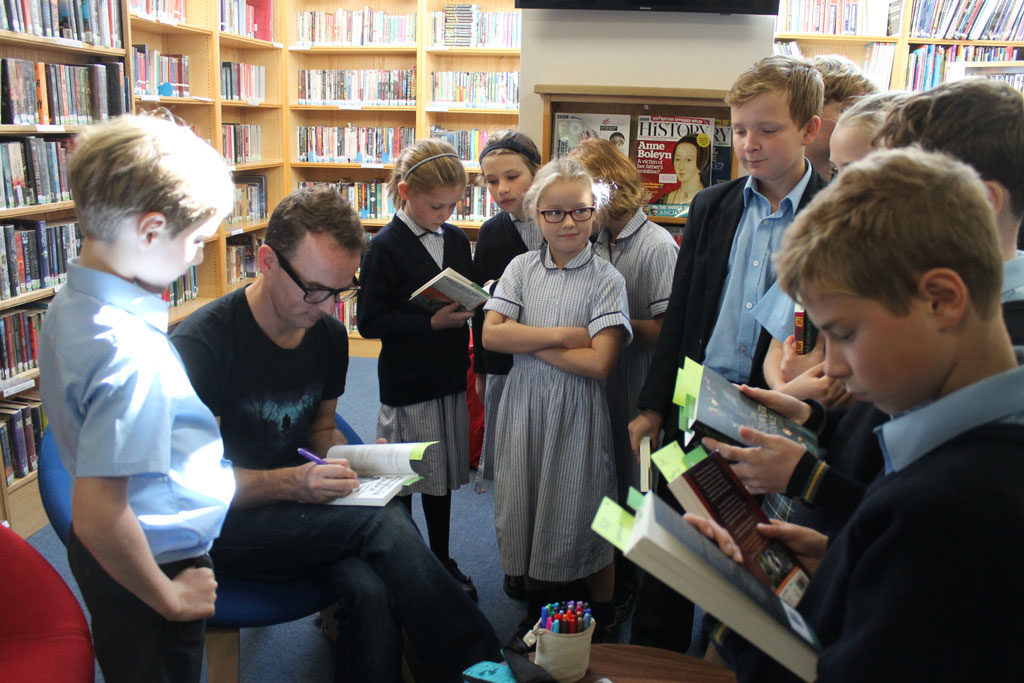
Cranleigh Prep School library was buzzing, with so many children queuing up to meet him and have their books signed by their new Patron of Reading
Whilst speaking about the many interesting and varied books he has written (36 in total), Gareth also captivated the children with his book-inspired songs, accompanied by himself on the ukulele, piano and accordion, although not at the same time!
Kate Schutte, Head of English at Cranleigh Prep, explains ‘Building a partnership with a Patron of Reading is so valuable to the children. Over the course of the year, the author helps pupils to grow in confidence as writers and develop their breadth of reading. I wouldn’t be at all surprised if one of our pupils becomes a published author in the future.’
2. Beech Hall Nursery Take a Trip to the Local Library
Inquisitive three year olds from Beech Hall Nursery loved every bit of their recent visit to Macclesfield Library on Jordangate.
As part of moving up into the new nursery class, pupils are encouraged to develop a love of reading and an outing to the local library proved a great start.
The young pupils were given a taste of independence, choosing their own books to read whilst in the library, and then selecting further books to take away with them to read at school or home.
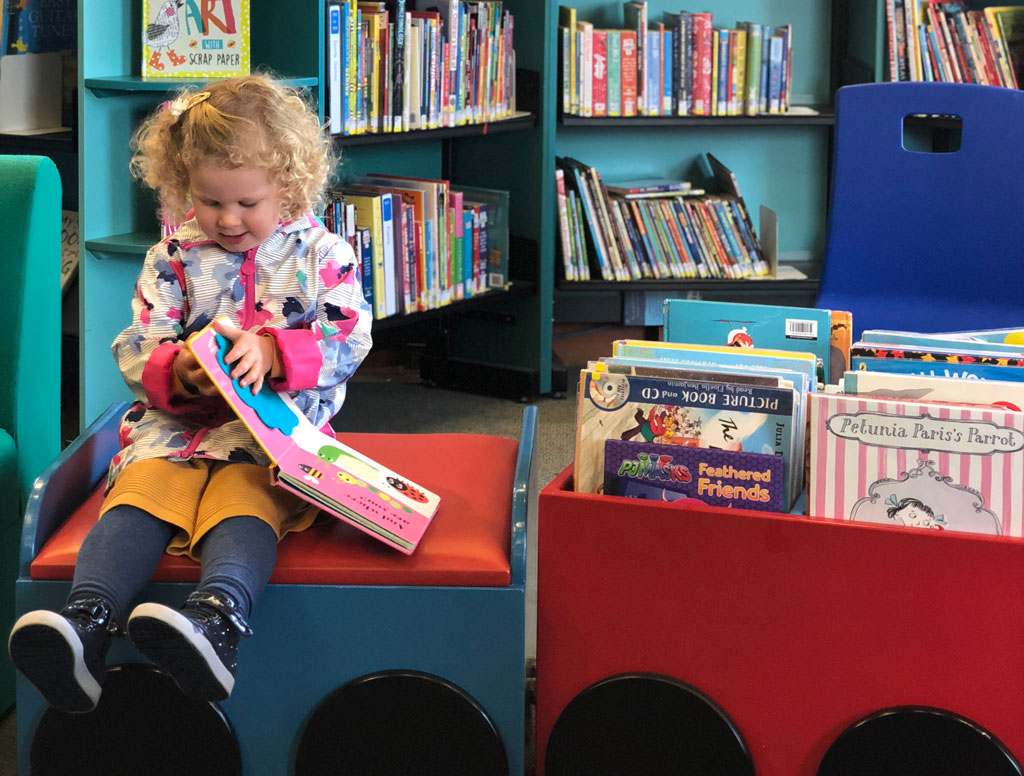
At Beech Hall Nursery, children start on their reading path very early and they carry on right throughout the school
James Allen, Headmaster at Beech Hall comments: ‘The trip to Macclesfield Library was a huge success, and the children are now relishing their next visit to return the books they have read and seek out new ones.’
‘At our school, children start on their reading path very early and they carry right on throughout the school, with the older children reading to younger pupils for mutual benefit. As we know regular reading from an early age supports so many key skills and is vital for vocabulary development and connecting meaning to the words and sentences they read.’
READ MORE: The Latest Extracurricular Clubs to Join | 3 Successful Schools That Are Still Growing



